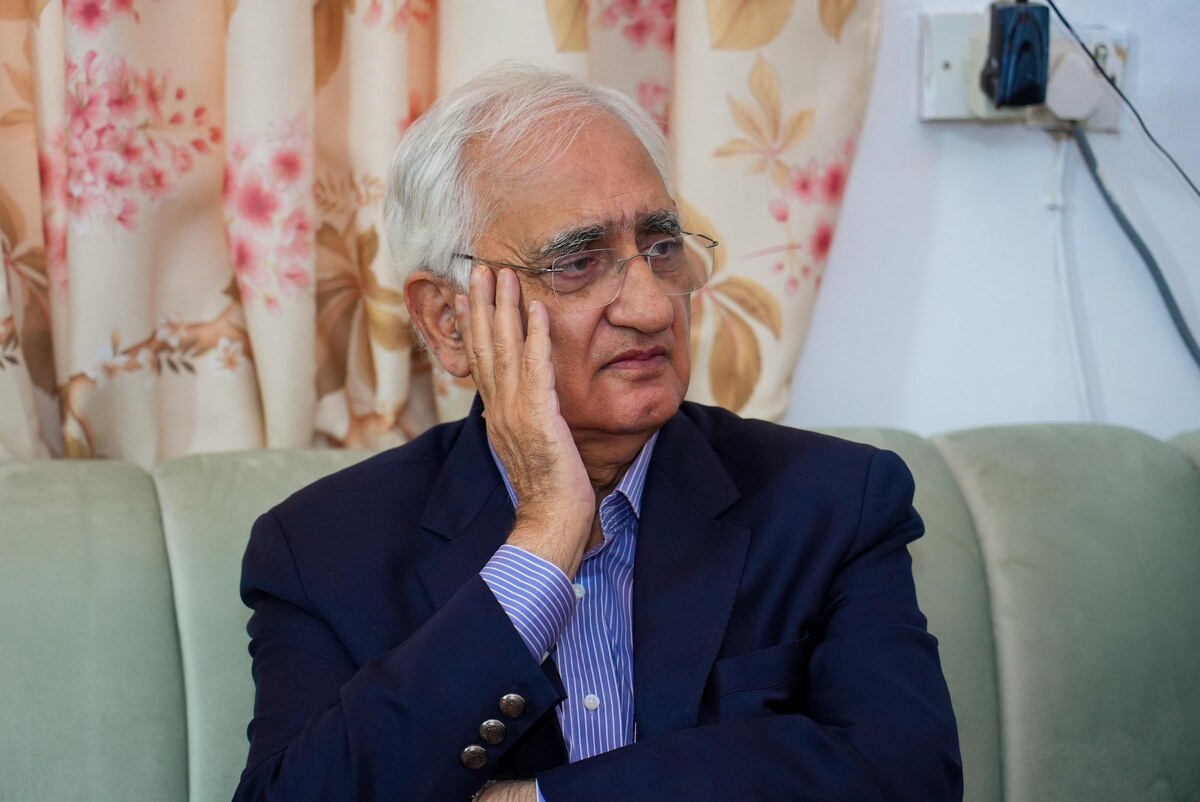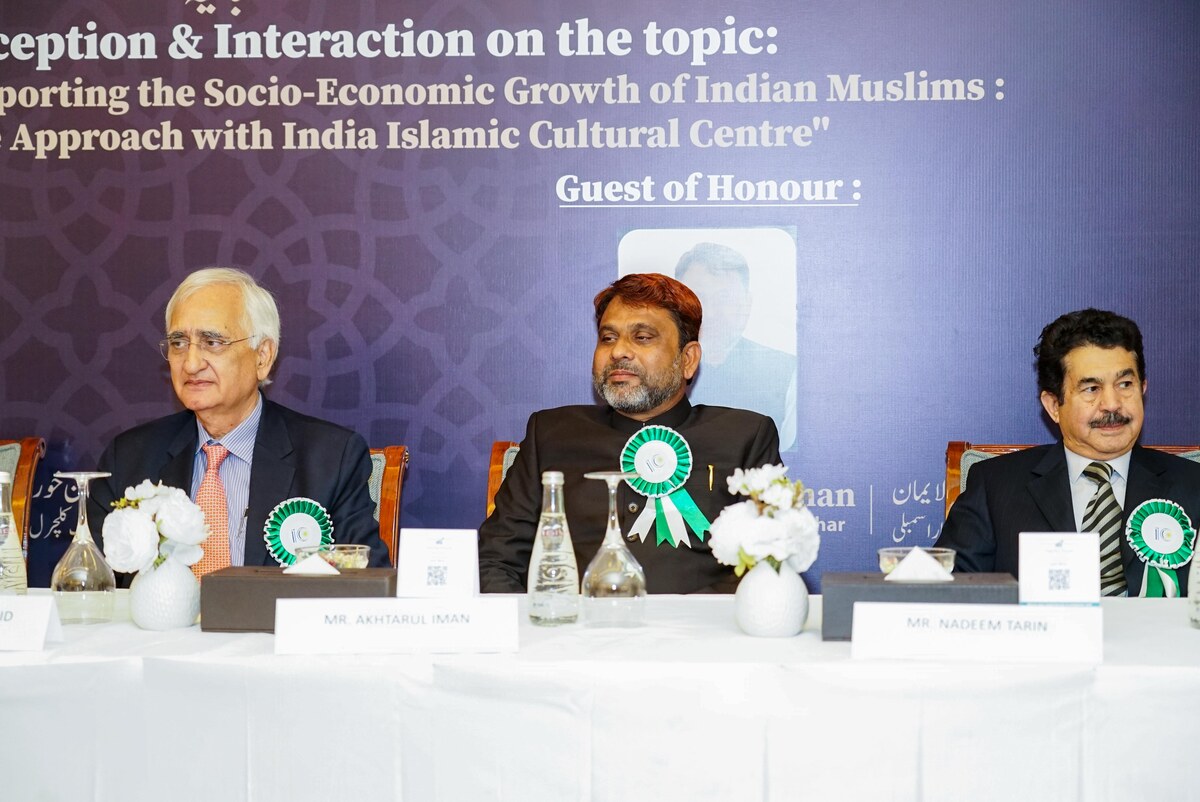RIYADH: Salman Khurshid, president of the India Islamic Cultural Center and his country’s former foreign minister, said Indians living and working in Saudi Arabia play a key role in relations between the two countries.
He added that he and his team are working on implementing changes and reforms at the cultural center to improve the support and services it provides for all Indians, not only in India but in other countries.
Khurshid, who was elected president of the center in August last year, was visiting Riyadh for an event on Friday during which he discussed with Indian expatriates their experiences of living and working in the Kingdom.

Former Indian Foreign Minister and president of the India Islamic Cultural Center Salman Khurshid during media interaction in Riyadh on Friday. (Supplied)
“I am in here to interact with the Indian community and discuss the ground realities,” he said. “They are keen to know about the developments in India.
“I am very pleased that the IICC is in focus, people are looking at what possibilities there are, and how much we can develop the organization as a hub that links different parts in the world and connects with how important it is for that dimension of the Indian culture and the Indian society to be understood in the world.
“The Indian diaspora in Saudi Arabia can provide an important bridge between the people of India and the people of Saudi Arabia, and this has been an important aspect for successive governments in India.
“We will brainstorm on key issues and ground realities, we will talk about those issues and what positive contribution can be made by people who have left their homes and families to come out into the world and make a mark with their presence here in the Kingdom.”
Prime Minister Indira Gandhi laid the foundation stone of the center’s headquarters in New Delhi on Aug. 24, 1984. The aim of the organization was to promote understanding among people of different religions and aid the cause of national integration. It was inaugurated by Congress party president Sonia Gandhi on June 12, 2006.
Regarding possible changes and development of the organization, Khurshid said there are plans to establish branches in states across India, and beyond, to support the decentralization and democratization of the center.
“It’s not just about chapters in different parts of India but also in other countries, as IICC overseas chapters, (for example) in Saudi Arabia,” he added.
“My view is that there should be chapters and we should support those chapters, but if people want fully fledged centers to be set up in states, I would say they should be affiliated centers supported by local members. Members from Delhi cannot control centers in the states, it must be truly democratic.”

Former Indian Foreign Minister and president of the India Islamic Cultural Center Salman Khurshid, AIMIM Bihar president Akhtarul Iman in Riyadh for an interaction with the Indian diaspora. (Supplied)
Khurshid was joined at Friday’s event by Akhtarul Iman, state president of the All India Majlis-e-Ittehad-ul-Muslimeen who represents the constituency of Amour in the Bihar Legislative Assembly. He said it is the responsibility of the government and state authorities to protect the lives, property, honor and safety of all Indian citizens, yet Muslims have increasingly been targeted by those who wish to spread fear among them.
In the past decade, he added, there has been an increase in cases of injustice and atrocities committed against Muslims under the rule of Bharatiya Janata Party-led central and state governments, and the leaderships of both the Rashtriya Janata Dal and the Janata Dal (United) parties have also failed to address these issues in an appropriate manner.
“They ask Muslims for support but fail to address their concerns,” Iman said, adding that his party is committed to ensuring that the grievances of all Indian Muslims who have faced problems since 2014 are addressed.





























